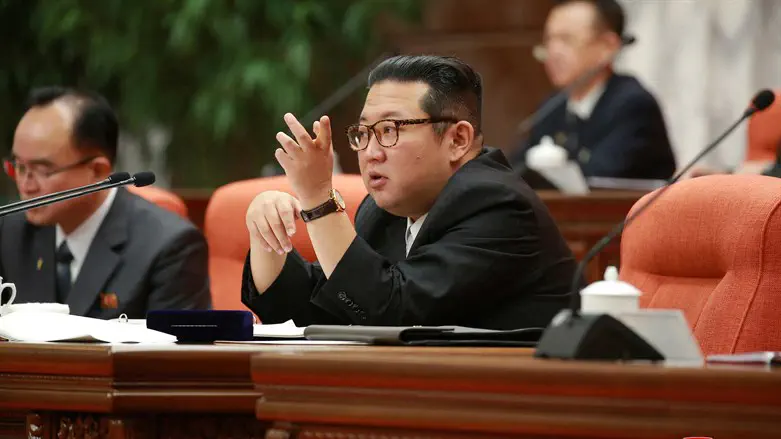
North Korean leader Kim Jong Un oversaw the launch of two long-range strategic cruise missiles, state media reported on Thursday (local time), according to Reuters.
The launch was described by the Korea Central News Agency (KCNA) as a test to confirm the reliability and operation of nuclear-capable weapons deployed to military units.
The test fire was conducted on Wednesday, and was aimed at "enhancing the combat efficiency and might" of cruise missiles deployed to the Korean People's Army "for the operation of tactical nukes," KCNA said.
Stressing that the test-fire was another clear warning to its "enemies," leader Kim Jong Un said the country "should continue to expand the operational sphere of the nuclear strategic armed forces to resolutely deter any crucial military crisis and war crisis at any time and completely take the initiative in it," according to KCNA.
The test is the latest in a series of tests carried out by North Korea in recent weeks. On Sunday, it fired two short-range ballistic missiles toward its eastern waters.
Japanese Vice Defense Minister Toshiro Ino confirmed the launches, saying Pyongyang's testing activities are "absolutely unacceptable" as they threaten regional and international peace and security.
That launch came three days after it fired two ballistic missiles from the Samsok area in Pyongyang towards the East Sea, also known as the Sea of Japan.
Days earlier, North Korea fired an Intermediate Range Ballistic Missile over Japan. Officials and analysts said that missile was a Hwasong-12 that travelled likely the longest horizontal distance of any North Korean test before.
North Korea has tested more than 30 ballistic weapons in 2022, including its first intercontinental ballistic missiles since 2017, as it continues to expand its military capabilities amid a prolonged stalemate in nuclear diplomacy.
Last month, North Korea passed a law officially enshrining its nuclear weapons policies. North Korean leader Kim Jong Un said the new legislation makes the country’s nuclear status "irreversible" and bars any negotiation on denuclearization.
